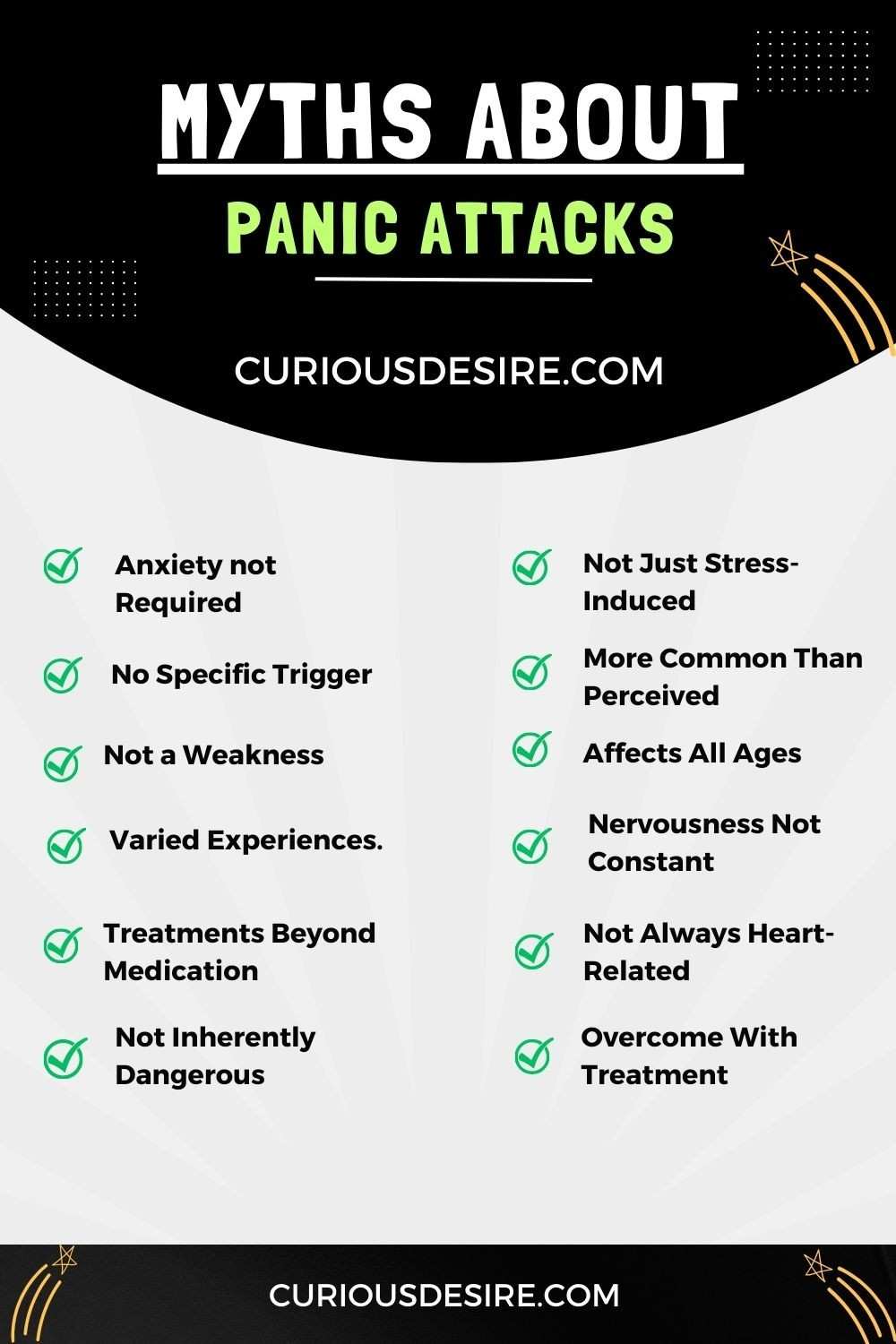Here are the top 5 common myths about panic attacks:
- Panic attacks only happen to people with anxiety disorders.
- Panic attacks are always triggered by something specific.
- Panic attacks are a sign of weakness or mental instability.
- Medications are the only effective treatment for panic attacks.
- Once you’ve had a panic attack, you’ll always have them throughout your life.
Myth 1: Panic Attacks Only Happen to People with Anxiety Disorders
Why This Myth Exist:
